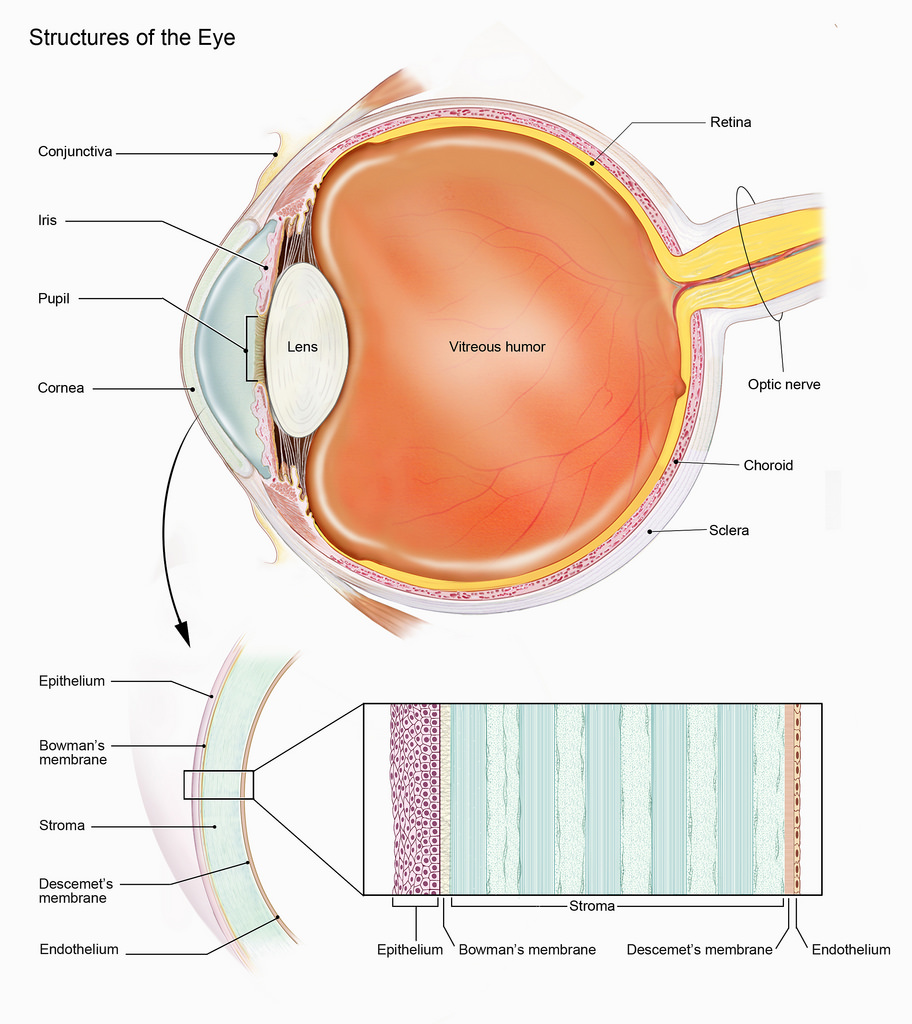As his Golden State Warriors prepare for the NBA Playoffs, hoping to become the first team to win three consecutive championships since the 2000-2002 Los Angeles Lakers, star point guard Stephen Curry revealed the secret to his improved three-point shooting in recent weeks in an interview with The Athletic, as reported by ESPN.
The secret? Contact lenses.
Curry also reported that he has long suffered from an eye disease known as keratoconus, and that his new contact lenses have dramatically improved his vision, to the point where “it’s like a whole new world has opened up,” according to The Athletic.
Keratoconus affects the cornea, the clear, front part of the eye pictured at the left in this image.
Keratoconus is a condition that affects the cornea, which is the clear, front part of the eye which sits in front of the colored iris.
Keratoconus causes the cornea to become thinner and steeper (think of a taller mountain) than it should be, and it may progress over time.
Sometimes, keratoconus can cause painful episodes of swelling of the cornea, known as hydrops, which may result in scarring of the cornea.
Keratoconus ranges in severity from mild, to moderate, to severe. Mild disease may require no treatment at all, or simple glasses wear. More moderate disease can benefit from contact lens wear. Sometimes, large “scleral” contact lenses can be helpful, as they can neutralize the warped cornea and improve a person’s vision. For severe keratoconus, a corneal transplant can be done, where a surgeon will remove all or part of a person’s cornea and replace it with a donor cornea. Here’s a video of my friends and former colleagues, Dr. Matt Ward and Dr. Mark Greiner, doing a type of corneal transplantation surgery called a DALK, which is sometimes done for keratoconus.
In the past few years, an exciting breakthrough in treatment for patients with keratoconus has become available. It is called corneal collagen cross-linking, and there are surgeons throughout the United States that offer this procedure. Here’s an article from the American Academy of Ophthalmology that discusses cross-linking.
Have you heard of LASIK surgery? For patients considering LASIK, which helps reduce or eliminate the need for glasses and contact lenses, the surgeon will do a careful examination and diagnostic testing in the clinic before the day of surgery, looking for, among other things, signs of early keratoconus. Why? Because LASIK, if performed on a person with early keratoconus, or a tendency toward it, can dramatically accelerate the disease.
The prospect of an even more accurate Steph Curry, now that his vision has improved, is sure to strike fear in the hearts of opposing defenses.





